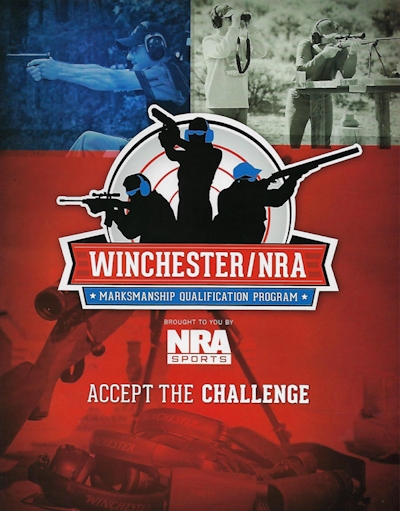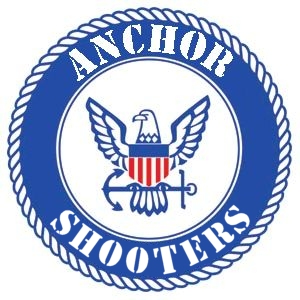Become a Distinguished Expert!

The Winchester/NRA Marksmanship Qualification Program is a skill development program. It has been the flagship of NRA's training development programs since 1903. Instructors and coaches use the qualification program as a guideline to train new shooters of all ages in their clubs. Individuals who are not involved in organized clubs also use the qualification program as a tool to develop their own shooting skills.
Qualification shooting is a year-round shooting activity that provides incentive awards for developing and improving marksmanship skills.
Progression is self-paced and scores are challenging but attainable! Performance is measured against established par scores; any shooter who meets or exceeds those scores is entitled to the corresponding recognition awards for that rating.
Based on the honor system, shooters acquire the large discipline patch at the onset of the program and, as each rating is earned, they are entitled to all of the corresponding awards for that rating. Each rating level has a skill rocker, medal, pin, and certificate award that recognizes and highlights the achievement.
The courses of fire in the qualification program are designed to take shooters from beginning skill levels (Pro-Marksman and Marksman) through intermediate levels (Marksman 1st Class, Sharpshooter, and Expert) up to the nationally recognized skill level and pinnacle of the program, Distinguished Expert. By the time a shooter completes the Distinguished Expert rating in rifle, pistol and shotgun, he/she has attained a proficiency level paralleling that of a competitively classified Sharpshooter.
Qualification shooting can be conducted anywhere including public ranges, at your favorite club range, or even on your own home range. BB and pellet gun shooters will find air gun qualification courses especially suited for home air gun ranges and family learning environments. Parents can shoot with their children or start a neighborhood air gun shooting sports program for their children and their friends.
Discipline-specific standards are listed with each course of fire. If specific exceptions are not made, the official NRA Rules apply. Shooters who are not familiar with shooting terms (targets, equipment, positions, scoring procedures, etc.) should attend an NRA Basic Firearm Training Course and obtain a copy of the appropriate rule book for a greater understanding of the discipline before firing for qualification.
Persons with physical disabilities are welcome to participate in the Marksmanship Qualification Program. A physical disability may result in a marksman having to assume a nontraditional, adaptive shooting position.
Ratings in the qualification program must be earned in sequence from the beginning. While beginning ratings may be relatively easy for some shooters to obtain, these ratings and the recognition shooters receive keep interest high and help sustain shooters when ratings become much more difficult to obtain. NRA does not track earned ratings but Anchor Shooters will track them for you.
In all cases, scores fired for qualification must be applied to the rating on which the shooter is currently working. Scores may not be held and used for higher ratings. In most cases, each skill level requires that you achieve a score a particular number of times to complete the level. However, they do not have to be fired consecutively or in the same session. Scores fired in practice sessions, leagues, or matches may all be applied toward qualification ratings.
View the qualification book.
View the shooter's scores.
